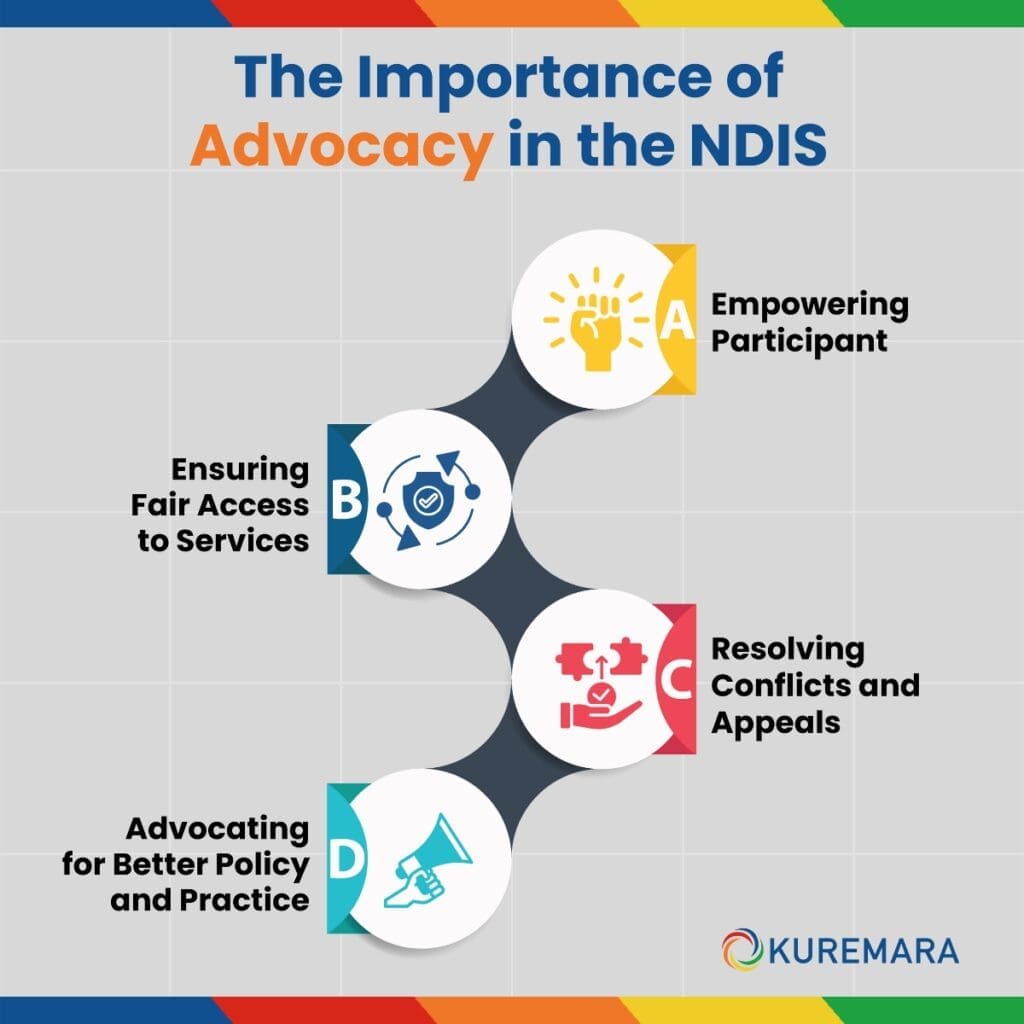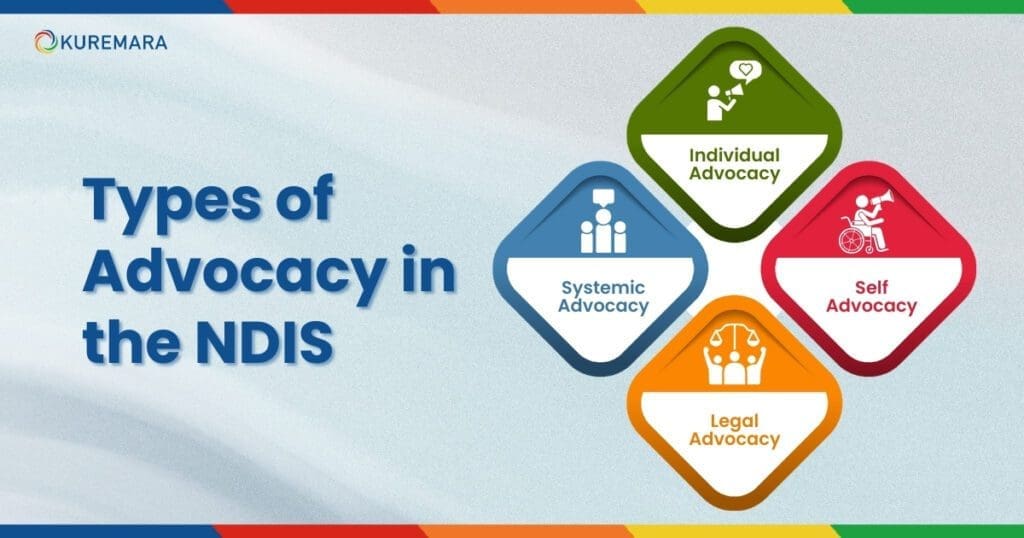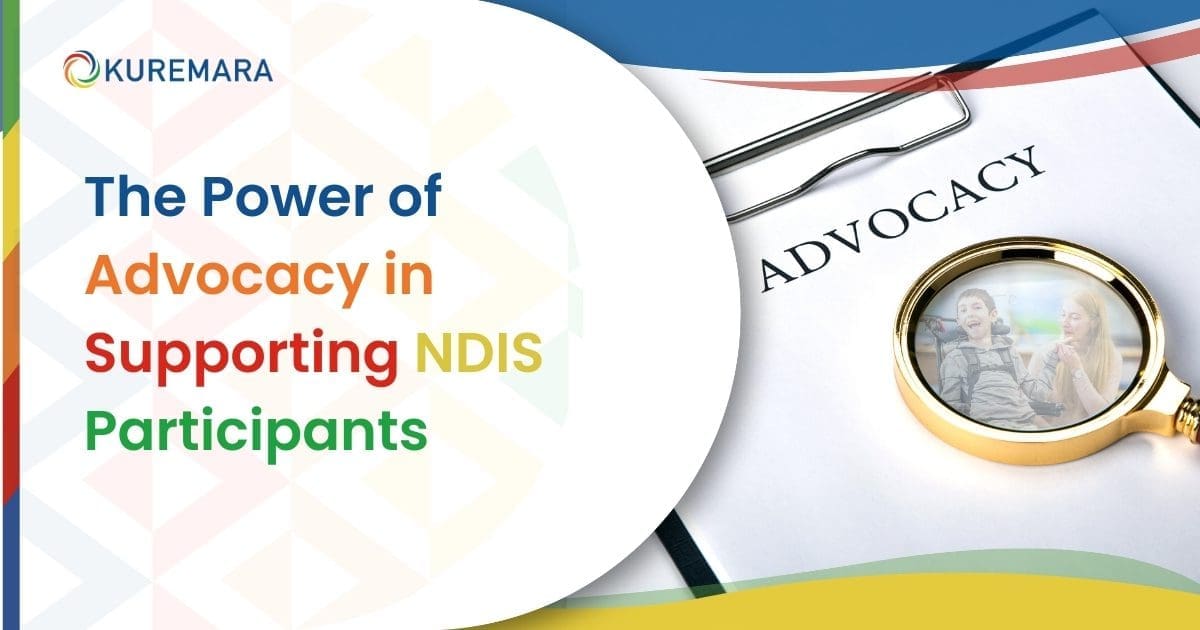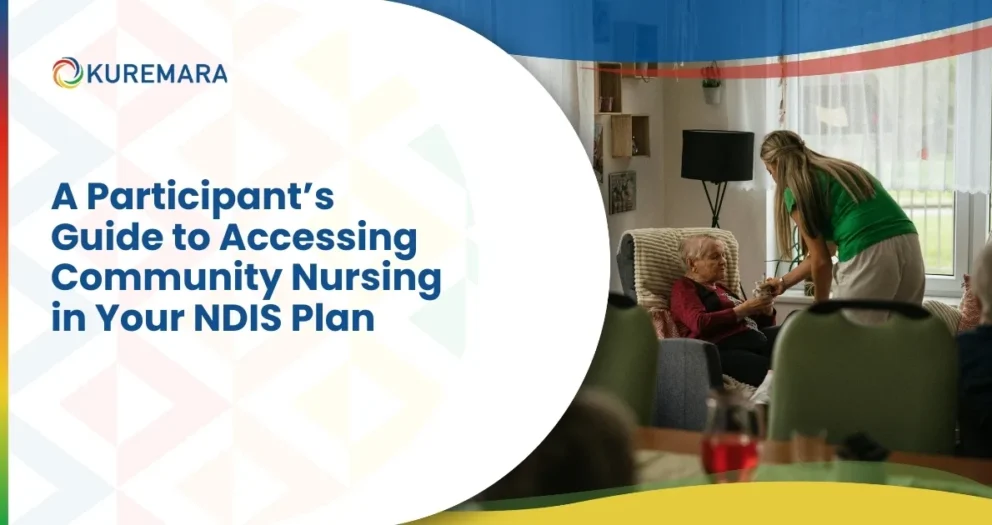In Australia, the National Disability Insurance Scheme (NDIS) has transformed the way individuals with disabilities access support services. While the NDIS provides crucial funding and resources, many participants face challenges in navigating the system. This is where the power of advocacy becomes essential. Advocacy for participants plays a vital role in ensuring that people with disabilities receive the support they need to live independent and fulfilling lives. In this blog, we’ll explore the significance of advocacy in supporting participants, how it enhances their experience, and why choosing a registered provider with advocacy services is crucial for achieving the best outcomes.
Understanding the Role of Advocacy in the NDIS
Advocacy refers to the process of supporting and representing individuals to ensure their rights are upheld and their voices are heard. Within the NDIS, advocacy is particularly important because participants often need assistance in understanding their rights, accessing services, and making informed decisions about their care.
This scheme is designed to offer participants more control and choice over the services they receive. However, the complexity of the system can make it difficult for some individuals to understand their entitlements and make decisions that truly reflect their needs. This is where NDIS advocacy services come in. Advocacy empowers participants to have a say in their care, ensures they understand their rights, and supports them in achieving their goals.
The Importance of Advocacy in the NDIS

For many participants, navigating the system can be overwhelming. With numerous policies, service providers, and funding arrangements to consider, it’s easy to feel lost. This is where NDIS advocacy support becomes invaluable.
1. Empowering Participants
Advocacy ensures that participants understand their rights under the NDIS and are aware of the services they can access. By providing information and guidance, advocacy helps individuals make informed decisions about their support, giving them more control over their lives. This empowerment is at the heart of the NDIS, which aims to promote independence and inclusion for people with disabilities.
2. Ensuring Fair Access to Services
Not all participants have the same level of understanding or ability to navigate the system. Some may face barriers due to language difficulties, cognitive impairments, or a lack of knowledge about their rights. Advocacy NDIS services help to bridge these gaps, ensuring that all participants have fair access to the support they need. Advocates work closely with individuals to ensure they receive the services they are entitled to, preventing any discrimination or exclusion.
3. Resolving Conflicts and Appeals
Unfortunately, there are times when participants may disagree with the decisions made by the governing body regarding their funding or services. In such cases, disability advocacy NDIS services can provide invaluable support. Advocates can help participants understand the reasons for the decision, provide advice on how to challenge it, and support them throughout the appeals process. This ensures that participants are not left to navigate complex legal and administrative processes alone.
4. Advocating for Better Policy and Practice
Advocacy doesn’t just benefit individual participants; it also plays a crucial role in shaping the organisation itself. Advocacy organisations often work on behalf of participants to push for changes to policies and practices that better meet the needs of people with disabilities. By highlighting issues and advocating for improvements, these organisations help to ensure that the scheme remains a fair and effective system for all participants.
Types of Advocacy in the NDIS

NDIS advocacy support comes in various forms, each tailored to meet the unique needs of participants. Understanding the different types of advocacies can help participants and their families choose the right support for their circumstances.
1. Individual Advocacy:
This is perhaps the most common form of advocacy within the NDIS. Individual advocacy focuses on representing the rights and interests of a single participant. Advocates work directly with participants to help them understand their NDIS plan, access services, and resolve any issues they may encounter. Whether it’s helping to secure additional funding or assisting with provider negotiations, individual advocacy is critical in ensuring participants receive the support they need.
2. Systemic Advocacy :
Systemic advocacy, on the other hand, focuses on broader issues within the NDIS. Instead of working with individual participants, advocates in this field push for changes to policies and systems that affect all participants. This might involve lobbying for improved access to services in rural areas, or campaigning for changes to NDIS funding criteria. Systemic advocacy plays a key role in ensuring that the NDIS continues to evolve and improve over time.
3. Legal Advocacy
In some cases, participants may require legal support to challenge decisions made by the NDIS. Legal advocacy involves working with participants to navigate complex legal processes, such as appeals and tribunal hearings. This type of advocacy ensures that participants are not disadvantaged by their lack of legal knowledge or resources.
4. Self-Advocacy
Self-advocacy is all about empowering participants to speak up for themselves. Many advocacy organisations offer training and resources to help individuals develop the skills they need to represent their own interests. While self-advocacy is not suitable for everyone, it can be a powerful tool for participants who are able to take an active role in managing their own NDIS plan.
Choosing a Registered NDIS Provider with Advocacy Services

When selecting an NDIS provider, it’s essential to choose one that offers more than just the basic support services. Registered providers that incorporate advocacy services can make a significant difference to a participant’s experience within the scheme.
1. Holistic Support
Providers that offer advocacy services take a holistic approach to care. They don’t just focus on delivering services; they also ensure that participants are receiving the right support and that their voices are being heard. This can be especially important for participants who face additional challenges, such as communication difficulties or limited family support.
2. Assistance with Complex Cases
Some participants have particularly complex needs, requiring a range of different services and supports. Advocacy NDIS providers can help to coordinate these services, ensuring that participants receive the care they need in a seamless and efficient manner. They can also assist with resolving any disputes that may arise between participants and service providers.
3. Ongoing Support
The NDIS is not a static system, and participants’ needs can change over time. Registered NDIS providers with advocacy services offer ongoing support to ensure that participants’ plans are regularly reviewed and updated to reflect their changing circumstances. This proactive approach helps to prevent issues from arising and ensures that participants continue to receive the right support.
4. A Focus on Independence
The ultimate goal of the NDIS is to promote independence and inclusion for people with disabilities. Advocacy services are a key part of achieving this goal. By empowering participants to take control of their own care and make informed decisions, advocacy helps to foster greater independence. Registered NDIS providers that offer advocacy services are well-placed to support participants in achieving their goals and living more autonomous lives.
When You Need an NDIS Disability Advocate?
A NDIS disability advocate is critically important for guiding you through the maze of the National Disability Insurance Scheme. You may need a disability advocate if you have a problem understanding your rights, gaining access to services, or when decisions are taken about your NDIS plan. These are among the most significant situations in which a NDIS disability advocate may be necessary:
- Develop or Review your Plan – There are cases where you may need help in understanding your plan or securing the right supports and services to meet your needs.
- Disputing NDIS decisions – You may also dispute NDIS decisions if your funding has been reduced, or if your services have been denied.
- Communicating with Service Providers – Ask to have a chance to discuss your issues with a service provider if you have an issue negotiating or getting your services through the NDIS providers.
- Dealing with Complex Cases – An advocate can represent your interests; therefore, if you have difficulties communicating, he or she can talk for you, and when there are cognitive impairments or lack of support from family members, then he or she can ensure that you are also treated in a fair manner.
- Decoding your rights – This is what advocates empower you with under the NDIS. They must make sure that you gain knowledge on your rights and entitlements, hence empowering you to make reasonable decisions over your care.
But a disability advocate in the NDIS can be beneficial, especially during frustrated or overwhelmed moments, since they help you ensure that you receive the services and care you are entitled to.
The Future of Advocacy in the NDIS
As the NDIS continues to evolve, the role of advocacy is likely to become even more important. With increasing numbers of participants joining the scheme, the need for advocacy services is growing. Advocacy organisations will need to continue pushing for improvements to the system, while also providing support to individual participants.
At the same time, there is a growing recognition of the importance of self-advocacy within the NDIS. Many participants are being encouraged to take a more active role in managing their own care, and advocacy organisations are providing training and resources to support this. As more participants develop the skills and confidence to represent themselves, the role of advocates may shift towards providing guidance and support, rather than direct representation.
Conclusion
Advocacy plays a crucial role in ensuring that NDIS participants receive the support they need to live fulfilling and independent lives. Whether it’s helping individuals navigate the complexities of the NDIS, supporting participants through disputes and appeals, or pushing for changes to the system itself, advocacy is essential in upholding the rights of people with disabilities. Registered NDIS providers that offer advocacy services provide a holistic and empowering approach to care, ensuring that participants are not only supported but also heard.
As the NDIS continues to grow and evolve, the power of advocacy will remain a key factor in ensuring its success. Whether you’re a participant, a family member, or a provider, understanding the importance of advocacy is essential in achieving the best outcomes for everyone involved in the scheme.
 care@kuremara.com.au
care@kuremara.com.au





